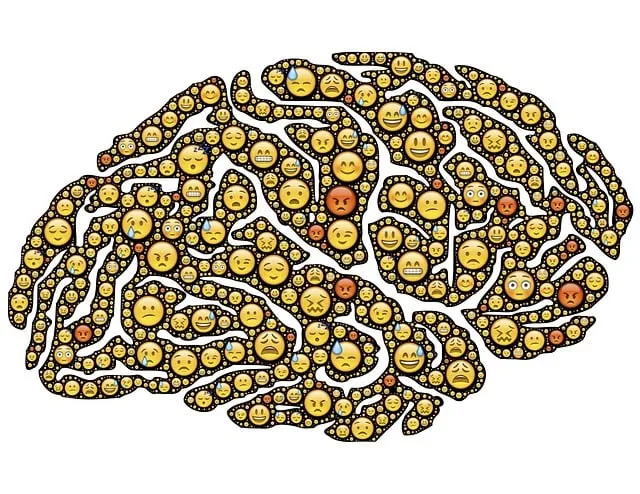Cultural competency is essential for mental health professionals at Kaiser Permanente in Westminster, as it enables personalized care, improves patient outcomes, and strengthens community bonds. The organization's training program equips staff with skills to navigate cultural differences, manage stress, and foster inclusive environments. This holistic approach enhances patient satisfaction and treatment adherence, especially for issues like anxiety. Effective programs should focus on cultural sensitivity, educating professionals about diverse perspectives, communication styles, and risk assessment. Continuous learning through workshops, case studies, conflict resolution training, and seminars is crucial for mental health staff to provide respectful, accessible, and evidence-based care at Kaiser Permanente mental health jobs in Westminster.
“Cultural competency training is an essential aspect of modern healthcare, especially within mental health services. This article explores why such training is crucial, using Kaiser Permanente’s successful program in Westminster as a case study. We delve into the impact of cultural awareness on patient care and outcomes, and outline key components for effective programs. Furthermore, we provide strategies for continuous learning, highlighting best practices for mental health professionals to enhance their skills, particularly within diverse communities.”
- Understanding Cultural Competency in Healthcare: A Necessity for Mental Health Professionals
- Kaiser Permanente's Approach to Training: Westminster as a Case Study
- The Impact of Cultural Awareness on Patient Care and Outcomes
- Essential Components of Effective Cultural Competency Programs
- Strategies for Continuous Learning and Improvement in Mental Health Jobs
Understanding Cultural Competency in Healthcare: A Necessity for Mental Health Professionals

In the realm of healthcare, cultural competency is no longer a nice-to-have but a necessity, especially for mental health professionals like those seeking Kaiser Permanente mental health jobs in Westminster. It involves understanding and appreciating the diverse cultural backgrounds, beliefs, and values of patients, enabling providers to deliver more personalized and effective care. For instance, what might be considered normal emotional expression in one culture could be interpreted differently in another, impacting diagnosis and treatment plans.
Mental health professionals play a crucial role in fostering Inner Strength Development and promoting Emotional Intelligence and Regulation among their patients. This requires them to be adept at navigating complex cultural landscapes, recognizing and respecting individual differences, and adapting their practices accordingly. Through culturally competent training, these professionals can better support patients from diverse backgrounds, ensuring they feel heard, understood, and ultimately, empowered on their journey towards mental wellness.
Kaiser Permanente's Approach to Training: Westminster as a Case Study

Kaiser Permanente, renowned for its comprehensive healthcare services, has established a robust framework for cultural competency training. The organization’s approach is exemplified by its program at the Westminster location, which serves as a model for enhancing patient care and employee satisfaction in diverse settings. This case study highlights their effective strategies.
The training focuses on empowering staff, particularly those in mental health roles, to navigate the complex needs of a diverse patient population. By incorporating modules on stress management and mental wellness, Kaiser Permanente ensures that employees are equipped with coping skills development tools. Through interactive workshops and cultural simulations, healthcare providers gain insights into various backgrounds, fostering an inclusive environment. This holistic training method not only improves patient outcomes but also strengthens the connection between caregivers and communities they serve.
The Impact of Cultural Awareness on Patient Care and Outcomes

Cultural awareness plays a pivotal role in shaping patient care and outcomes, especially in diverse communities like that found around Kaiser Permanente mental health jobs Westminster. Healthcare providers who possess a deep understanding of cultural nuances are better equipped to offer personalized and effective treatment plans. This sensitivity allows for a more inclusive environment where patients feel heard, respected, and understood, fostering trust and encouraging open communication.
When it comes to addressing mental health concerns, such as anxiety and its related disorders, culturally competent care can significantly impact an individual’s journey towards emotional healing processes. By recognizing and incorporating cultural perspectives into therapy, providers can offer tailored interventions for Anxiety Relief and support patients in achieving Emotional Regulation. This approach not only enhances the quality of care but also promotes better patient satisfaction and adherence to treatment protocols.
Essential Components of Effective Cultural Competency Programs

Effective cultural competency programs in healthcare, including those focused on Kaiser Permanente mental health jobs Westminster, should incorporate several essential components to ensure impactful learning and positive change. Firstly, these programs must prioritize cultural sensitivity in mental healthcare practice. This involves educating professionals about diverse cultural beliefs, values, and practices related to mental illness, treatment preferences, and communication styles. By fostering a deep understanding of these nuances, mental health experts can deliver more personalized and culturally responsive care.
Additionally, incorporating interactive workshops, case studies, and role-playing scenarios into the training curriculum enhances learning. These activities encourage professionals to practice applying cultural competency skills in realistic situations, such as conducting risk assessments for mental health professionals. By addressing these aspects, healthcare providers gain confidence in navigating complex cultural landscapes, ensuring that every patient receives respectful, accessible, and effective treatment, reflecting the values of organizations like Kaiser Permanente.
Strategies for Continuous Learning and Improvement in Mental Health Jobs

In the dynamic field of mental health care, continuous learning and improvement are paramount to delivering effective services, especially in diverse settings like Kaiser Permanente mental health jobs Westminster. Professionals in this realm face unique challenges, requiring a commitment to lifelong education. One strategic approach is through well-designed mental health education programs. These programs can cover various topics such as the latest therapeutic techniques, cultural competency training, and evidence-based practices. By fostering a culture of learning, healthcare providers can enhance their skills and stay abreast of evolving research in mental health policy analysis and advocacy, ultimately benefiting patient outcomes.
Additionally, incorporating conflict resolution techniques into the educational curriculum is valuable. Effective conflict management ensures that professionals can handle sensitive situations with empathy and professionalism. This skill set is crucial for building positive relationships between patients, families, and care teams. Moreover, regular workshops and seminars focused on these areas can encourage ongoing development, ensuring that Kaiser Permanente mental health jobs Westminster’s staff are prepared to navigate complex scenarios, provide compassionate care, and contribute to the broader mental health policy analysis efforts.
Cultural competency training is no longer an option but an essential requirement for healthcare providers, especially in diverse communities. As highlighted by Kaiser Permanente’s successful program in Westminster, comprehensive training can significantly enhance patient care and outcomes, fostering better relationships between mental health professionals and patients from various cultural backgrounds. For those in the field of mental health jobs, particularly within organizations like Kaiser Permanente, continuous learning is key to staying effective and relevant. By implementing essential components as outlined in this article, professionals in Westminster and beyond can ensure they provide culturally competent care, ultimately improving patient satisfaction and health outcomes.






